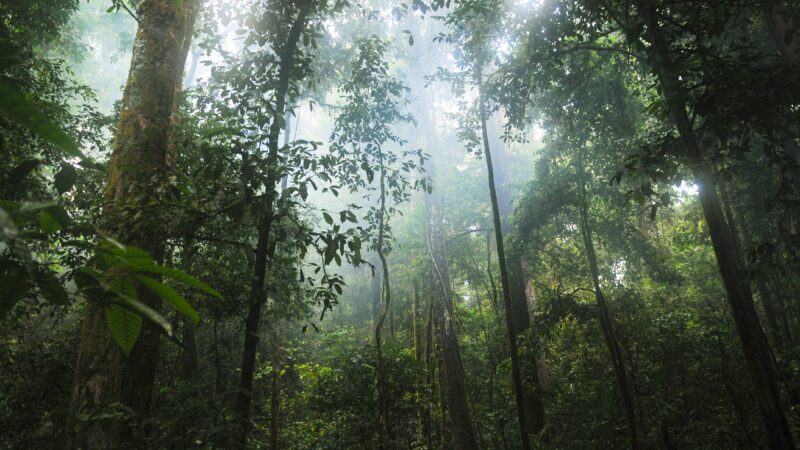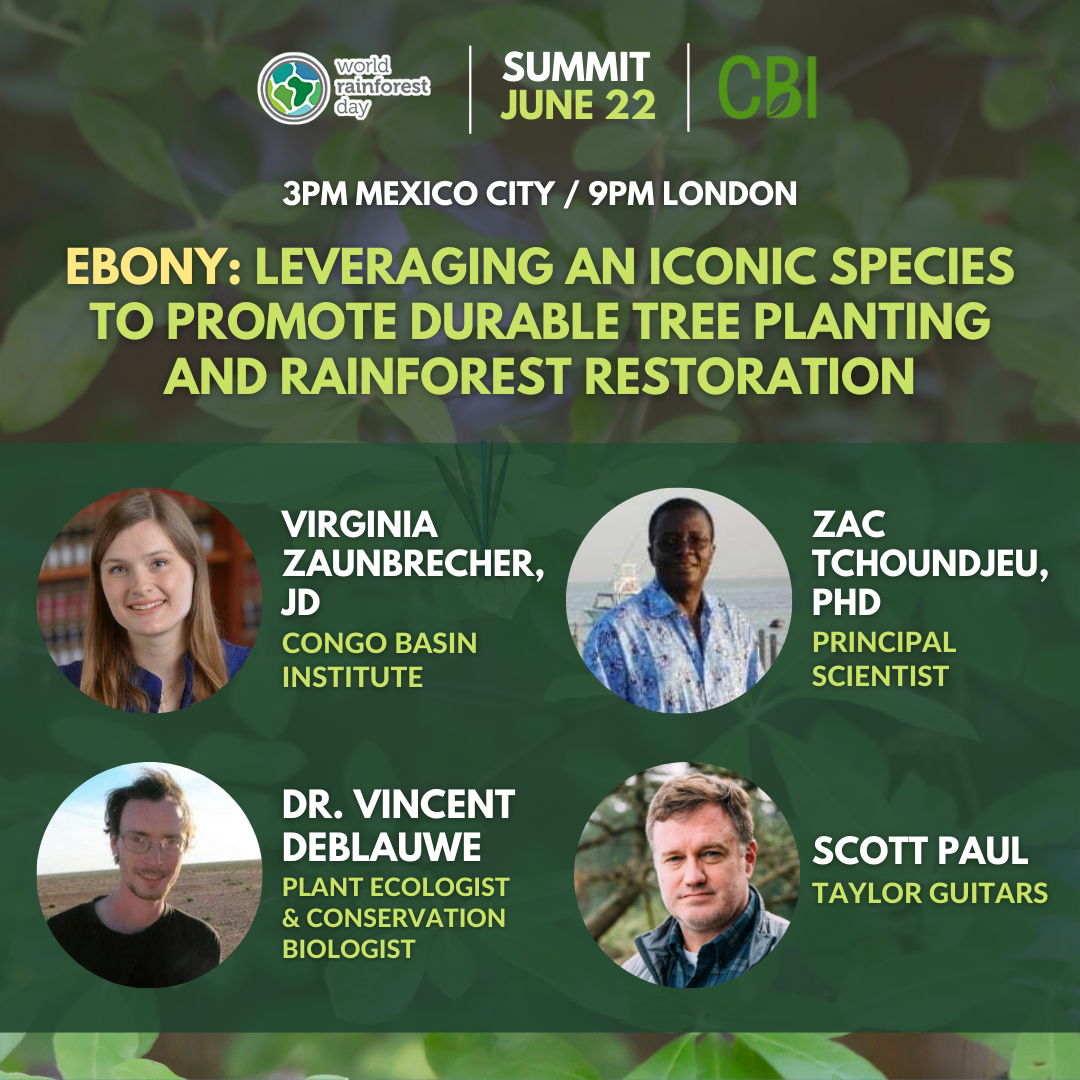
This year’s World Rainforest Day Summit on June 22, 2022 will include a panel led by the Congo Basin Institute entitled, “Ebony: Leveraging an Iconic Species to Promote Durable Tree Planting and Rainforest Restoration.”
What do you get when you combine guitars, scientists, communities, and rainforest? In the case of the Ebony Project, a you get a partnership where business, communities, and researchers work together to protect a valuable timber species, reforest degraded land, address local food security issues, and improve rural livelihoods. In this session we’ll explain how this project has planted over 21,000 ebony trees and 6,000 locally valuable fruit and medicine trees in Cameroon. We’ll also connect the Ebony Project to larger themes of rainforest restoration and responsible tree planting and take questions about what has—and hasn’t—worked.
To register for the summit, please visit the World Rainforest Day Summit 2022 webpage.

Dr. Vincent Deblauwe
As a plant ecologist and conservation biologist, Vincent is most interested in the biotic and abiotic processes that govern plant growth, survival and reproduction. Most tropical ecosystems are threatened by human induced perturbations and shifting environmental conditions. Vincent’s work focuses on the non-linear response of ecosystem states to these threats. At a local scale, he sets up field experiments to understand plant-pollinator, plant-disperser and plant-plant interactions in the African tropics to better predict the impact of perturbations. By designing methodological tools for the analysis of remote sensing data, he also studies the broader scale spatio-temporal patterns generated by, and retroacting with ecological processes. Together, this knowledge would allow us to inform strategies for a more sustainable use of natural resources.
Scott Paul
Scott Paul is the Director of Natural Resource Sustainability at Taylor Guitars where he is responsible for ensuring the company maintains a socially responsible and environmentally sustainable supply chain. He comes to Taylor Guitars with over 25 years’ experience working for some of the largest environmental organizations in the world, including 14 years at Greenpeace where he served as the Director of the Forest Campaign. Scott has significant international policy experience including working for The White House Office on Environmental Policy and participating in the U.N. forest policy dialogue. Scott has particular expertise with environmental advocacy campaigns, business development, and ethical sourcing. He is well-versed in diplomatic relations and has spoken before the United Nations and appeared on national television and radio. He is also the first person in over 100 years to have been arrested for Sailor Mongering. Seriously, Google it.
Dr. Zac Tchoundjeu
Zac Tchoundjeu, (PhD University of Edinburgh, 1990) is a Principal Scientist with a focus on Agroforestry & Tree Domestication of high-value indigenous fruit trees and medicinal plants. Zac served as ICRAF Regional Coordinator for West and Central Africa until end 2017. He developed the concept of Tree Domestication of Agroforestry tree species which is widely used on 130 species of the world. Since 2018, he is running the Higher Institute of Environmental Sciences, training Bachelor, MSC and PhD students to Environmental Sciences with a focus on Agroforestry, Conservation of Biodiversity, Environmental Health, Climate Change, and Environmental & Social Impact Assessment. Zac was awarded the National Geographic/Buffet prize in June 2012 for his contribution to the protection of the Congo Basin forests. Zac is a member of the Royal Academy of Science of Belgium since 2006. He is author and co-author of more than 150 scientific publications. Up to date he had supervised 15 PhD and 50 Master degrees.
Virginia Zaunbrecher, JD
Virginia Zaunbrecher is the Associate Director of the Congo Basin Institute (CBI), and is part of CBI’s senior leadership team. As a lawyer with a science background, she works to translate the Institute’s scientific findings into policy and conservation practice. Before joining UCLA she designed and managed aid and development projects in Africa and Asia for nearly five years, which has influenced her efforts to center local communities in CBI’s projects. Her work focuses on bringing together multi-disciplinary teams of ecologists, agricultural researchers, remote sensing experts, and social scientists to bring multiple perspectives to complex challenges, work together to find durable solutions, and to find creative and meaningful ways to bring communities into those processes. She is currently leading a team pioneering a conservation approach for a high forest, low deforestation landscape in the Eastern Democratic Republic of Congo, and exploring how the model of CBI’s Ebony Project can be expanded to contribute to broader conservation goals like 30×30 while also addressing the needs of local communities. She is also faculty at UCLA’s Institute of the Environment and Sustainability.
